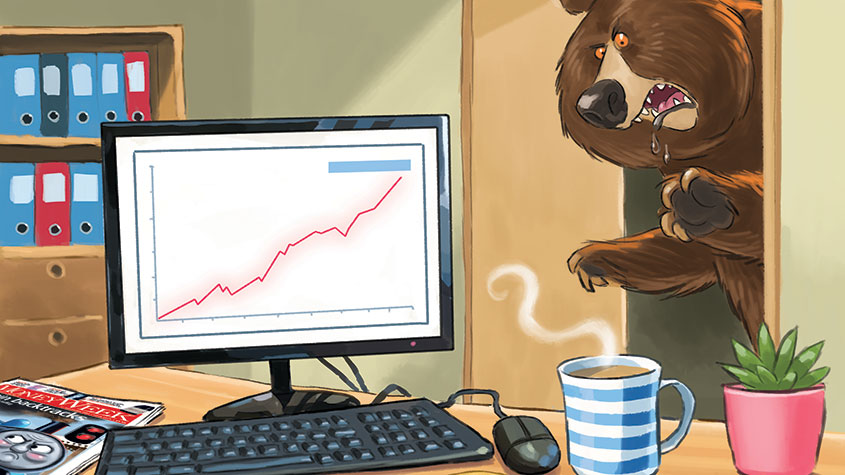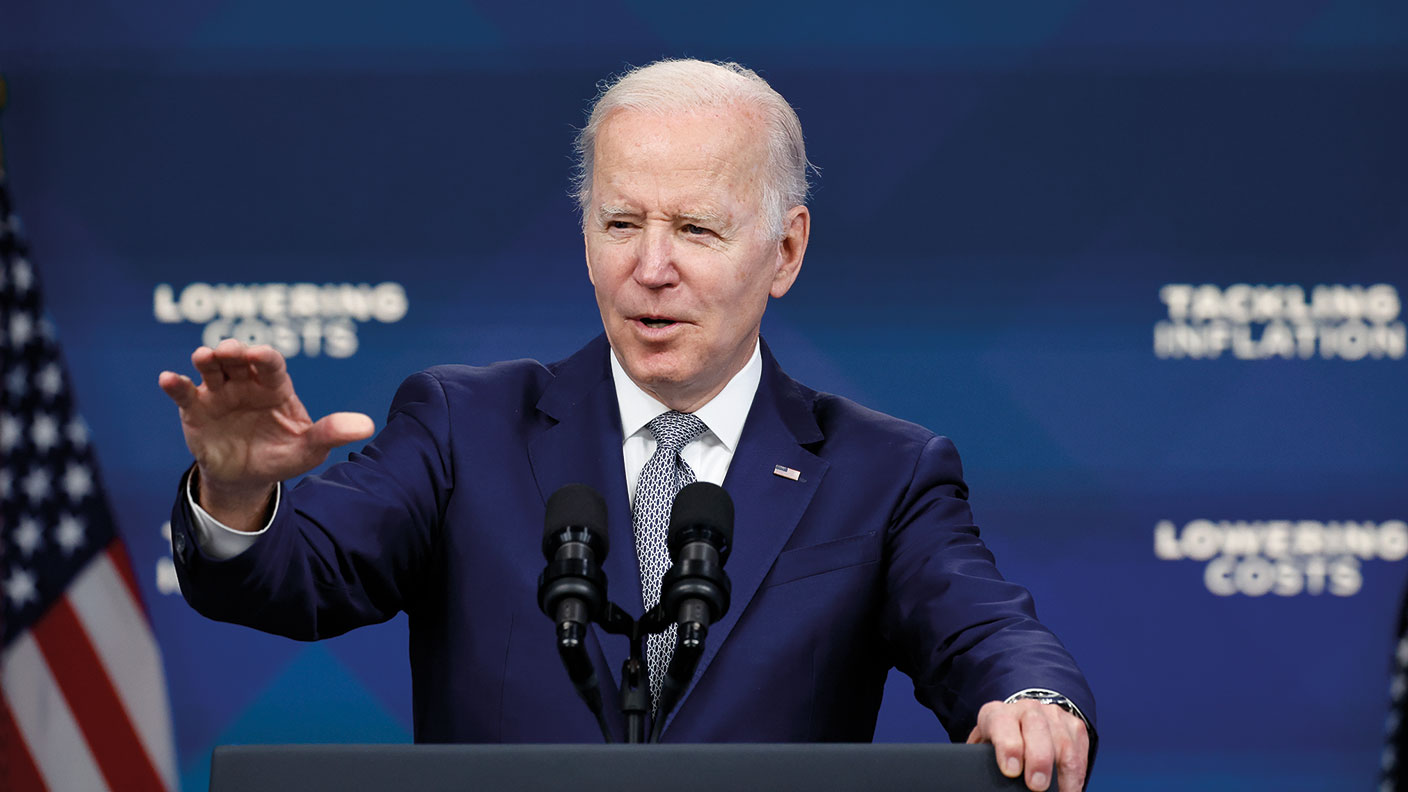Come back to commodities
MoneyWeek has been bearish on most commodities ever since the financial crisis kicked off. But now it's time to buy back in, says Merryn Somerset Webb.

Get the latest financial news, insights and expert analysis from our award-winning MoneyWeek team, to help you understand what really matters when it comes to your finances.
You are now subscribed
Your newsletter sign-up was successful
Want to add more newsletters?

Twice daily
MoneyWeek
Get the latest financial news, insights and expert analysis from our award-winning MoneyWeek team, to help you understand what really matters when it comes to your finances.

Four times a week
Look After My Bills
Sign up to our free money-saving newsletter, filled with the latest news and expert advice to help you find the best tips and deals for managing your bills. Start saving today!
We were once very intense commodity bulls at MoneyWeek. Back in 2001 or so, around when we started trying to persuade you all to buy gold, we also got into the idea of the commodity supercycle. Then, prices of almost all commodities from sugar to silver were languishing at ludicrously low levels. Yet exploration had collapsed. There was very little new supply coming online, despite huge (and obvious) demand down the road from fast-developing emerging countries. Prices had to go up. And so they did.
We got nervous on all this a few years ago, and have been avoiding the industrial miners in particular for a while. This week, however, our cover storysuggests you might like to buy back in. We still think China will see a hard landing, and we still think the global economy is in a bit of a pickle growth-wise. No change there. But it is worth remembering a few things.
First, even a slowing or rebalancing China will still need a good supply of commodities to keep going. Second, commodities aren't all about China even as recently as 2004, Japan was the world's biggest importer of iron ore. And third, investing isn't about growth, it is about price.
MoneyWeek
Subscribe to MoneyWeek today and get your first six magazine issues absolutely FREE

Sign up to Money Morning
Don't miss the latest investment and personal finances news, market analysis, plus money-saving tips with our free twice-daily newsletter
Don't miss the latest investment and personal finances news, market analysis, plus money-saving tips with our free twice-daily newsletter
If you buy something for a price that already reflects every possible element of a happy future, you are highly unlikely to make money. But if you buy something at a price that reflects expectations of untold misery, it takes only one nice surprise to turbocharge your returns. Right now, many of the big (and the very small) resources companies we look at are very cheap indeed. Look at the Baker Steel Resources Trust in this week's cover story. Not only has its share price fallen 50% over the last year, but you can now pick up its shares at a huge discount to its net asset value. Which is nice.
Still not convinced? I have among the millions a note from Aviate Global on my desk. Their analysts point out that the price of shares in Rio Tinto usually tracks that of iron ore reasonably well. At the moment, however, the two are diverging: iron ore has risen to over $120 a tonne (well above analyst estimates for the year), but Rio shares have been gently falling for months. To Aviate, that doesn't make sense.
If you look at the iron-ore price and then add in "renewed cost control", the effects of a weak Australian dollar, and some growth of production, they say, it seems that we could easily be seeing a trough in Rio earnings. Assume this is so, says Aviate, and buyers will find they are able to pick up the shares at almost half the price-to-earnings ratio they paid at the bottom of the last trough in 2009.
All misery can be overdone. We aren't suggesting you pull your money out of everywhere else and pile it all into mining stocks, small or large. This is risky stuff. But for anyone with a contrarian streak, this seems as good a time as any to start buying.
Get the latest financial news, insights and expert analysis from our award-winning MoneyWeek team, to help you understand what really matters when it comes to your finances.

-
 Early signs of the AI apocalypse?
Early signs of the AI apocalypse?Uncertainty is rife as investors question what the impact of AI will be.
-
 Reach for the stars to boost Britain's space industry
Reach for the stars to boost Britain's space industryopinion We can’t afford to neglect Britain's space industry. Unfortunately, the government is taking completely the wrong approach, says Matthew Lynn
-
 What to do as the age of cheap money and overpriced equities ends
What to do as the age of cheap money and overpriced equities endsEditor's letter The age of cheap money, overpriced equities and negative interest rates is over. The great bond bull market is over. All this means you will be losing money, says Merryn Somerset Webb. What can you do to protect yourself?
-
 Investors are bullish – but be very careful
Investors are bullish – but be very carefulEditor's letter Many investors are buying the dip, convinced the latest upswing is the start of a new bull market. The odds are that it’s not, says Andrew Van Sickle. The bear has unfinished business.
-
The MoneyWeek approach to investing
Editor's letter At MoneyWeek, our aim is simple: to give you intelligent and enjoyable commentary on the most important financial stories, and tell you how to profit from them. So how do we do that?
-
 Celebrity bitcoin ads echo the subprime mortgage crisis
Celebrity bitcoin ads echo the subprime mortgage crisisEditor's letter A wave of ads featuring celebrities punting crypto to the masses are reminiscent of how low income Americans were encouraged to take on loans they couldn’t afford, says Merryn Somerset Webb.
-
 Will the UK's property slowdown turn into a house-price crash?
Will the UK's property slowdown turn into a house-price crash?Editor's letter As the cost-of-living crisis intensifies and interest rate rise, it is hard to see reasons for UK house prices to keep rising, says Merryn Somerset Webb.
-
 The unintended consequences of ESG investing
The unintended consequences of ESG investingEditor's letter Many people are refusing to invest in energy companies, citing "ESG" concerns. But we still need fossil fuels, says Merryn Somerset Webb, and will for years to come. Boycotting the sector is a bad idea.
-
 What sardines can teach investors about today's markets
What sardines can teach investors about today's marketsEditor's letter A California tale of “eating sardines” and “trading sardines” can help us divide investments into speculative and real, says Merryn Somerset Webb. Something that's very useful when looking at today’s markets.
-
 The market finally seems to be getting it
The market finally seems to be getting itEditor's letter Reality checks are coming fast to the markets, says Merryn Somerset Webb – with even 2022’s safe havens beginning to reflect recession worries.